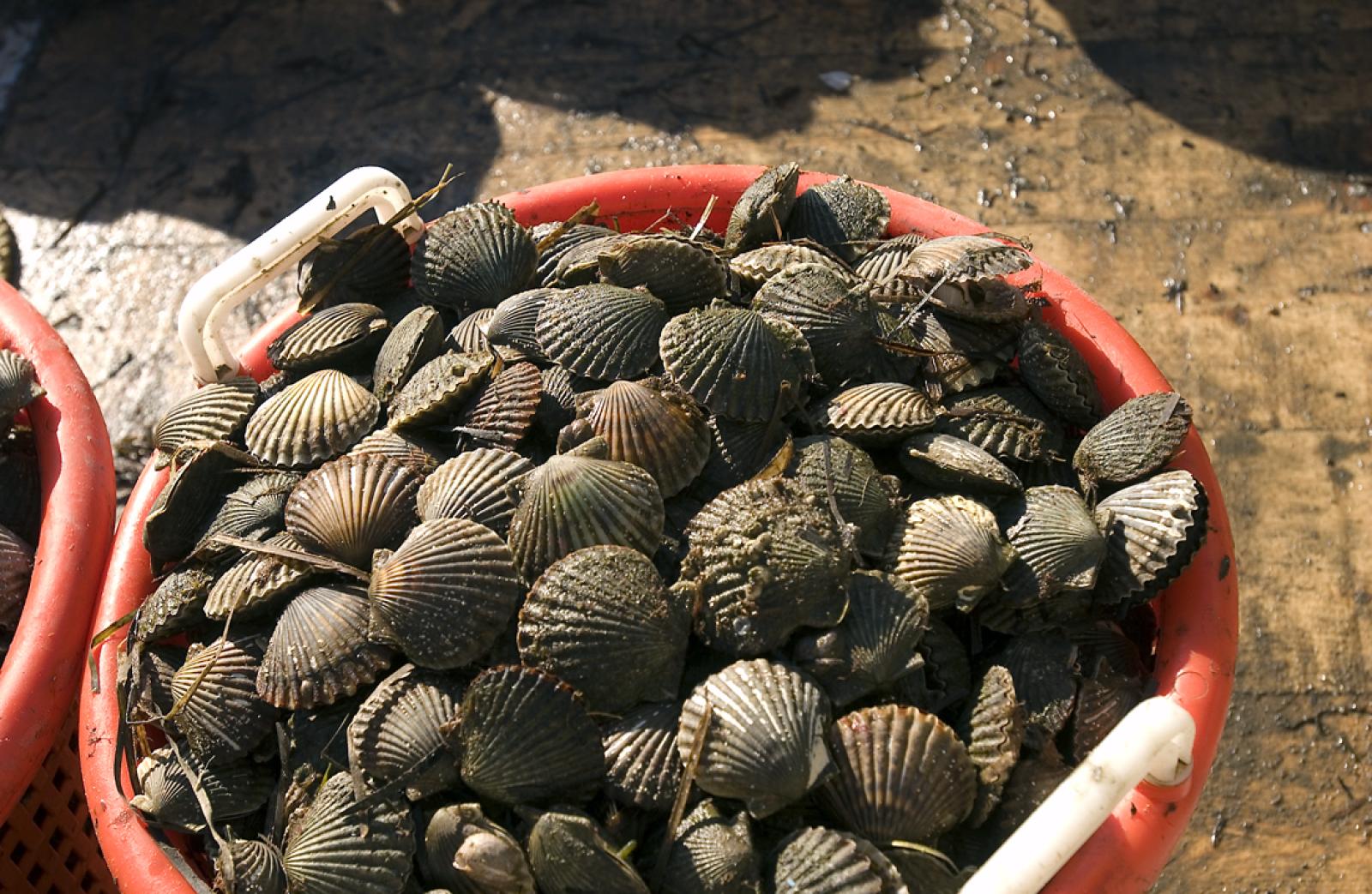Though most towns in Massachusetts officially close the bay scallop season at the end of next week, Edgartown shellfishermen can keep going in what has been a banner season for them. With an abundance of bay scallops still out there, on Monday the Edgartown selectmen voted to add another month to the season.
“This season is the best in a while,” said Paul Bagnall, Edgartown shellfish constable. “It hasn’t been this good since the 1990s.
“The down side,” he added, “is the price paid to the fishermen.”
Edgartown commercial and recreational fishermen landed over 8,000 bushels of bay scallops last year, most of it from Cape Pogue Pond. The bay scallop season runs from November through March; shellfish constables make their assessments on a calendar year from January to December. Most of those 8,000 bushels were landed in October through December.
The bay scallop fishery is the Vineyard’s traditional off-season industry and a number of Island residents depend on it.
The Edgartown season began with just over 50 fishermen going out each day, most of them two in a boat. Mr. Bagnall said that as the season got colder and conditions tougher, the numbers dropped to 25 fishermen a day.
The main struggle was over the price paid to the fishermen. It is expensive operating a powerboat, outboard and gear. The scallops must also be shucked before they are turned over to the fish markets.
A number of fishermen complained loudly last fall over the low market price. The reason for the low price was simple, though: besides an abundance beyond Edgartown, bay scallops are a culinary delicacy and, with the economy slumped, people were not buying so much.
Edgartown did better than all the other Island towns combined, though other traditionally productive places also saw a strong bay scallop season. Nantucket had a good year, though the size of their scallops got smaller as the season unfolded. Bay scallops were harvested on Cape Cod for the first time in years. Even Long Island had bay scallops.
“Multiple towns had a decent scallop year,” Mr. Bagnall said. “It was a regional thing.” A number of towns have worked hard to revive their bay scallop fisheries, and Mother Nature cooperated.
Island fishermen were paid as high as $14 a pound for shucked bay scallops at the start of the season, in October. That dropped precipitously to $7 a pound in November and rebounded to $8 to $10 for the rest of the season, Mr. Bagnall said.
The consumer benefitted. The retail price dropped as low as $10 a pound, to a high of $15 on the Vineyard.
Mr. Bagnall is cautious about projecting how big next year’s crop will be, though there is plenty of seed out in the ponds. “It probably won’t be a banner year like this past year,” Mr. Bagnall said.
The further good news is that eelgrass beds are in better shape in Cape Pogue than they’ve been in a while. Eelgrass is an essential part of the ecosystem.
Mr. Bagnall said there were more bay scallops in areas other than Cape Pogue, too. Sengekontacket Pond did better this past season and its future looks good.
David Grunden, Oak Bluffs shellfish constable, said his town did less than a year ago but bay scallops have spread in Sengekontacket. “We landed a little less than last year,” Mr. Grunden said. One Oak Bluffs bay scalloper was dragging in Sengekontacket just this week.
Tisbury had a poor year, landing less than 800 bushels. The town lost its shellfish constable, Derek Cimeno, who died in September.
Chilmark had a poor year compared to the 1,600 bushels landed two years ago. Isaiah Scheffer, shellfish constable, said fishermen landed 458 bushels last year. “We had about six or seven guys going all the way to the end of January,” he said.
But, looking ahead, Mr. Scheffer said there is plenty of bay scallop seed in the ponds that could make it through the coming year. It is tricky to predict, as a lot of factors can hurt or make the fishery, but the amount of seed is promising.
Next year will be a better year for Aquinnah recreational and commercial bay scallopers. There is seed in Menemsha Pond. It won’t take much to do better. Faced with a low number of adult animals and a concern for protecting the seed, the town never opened the commercial or recreational season this year.




Comments
Comment policy »